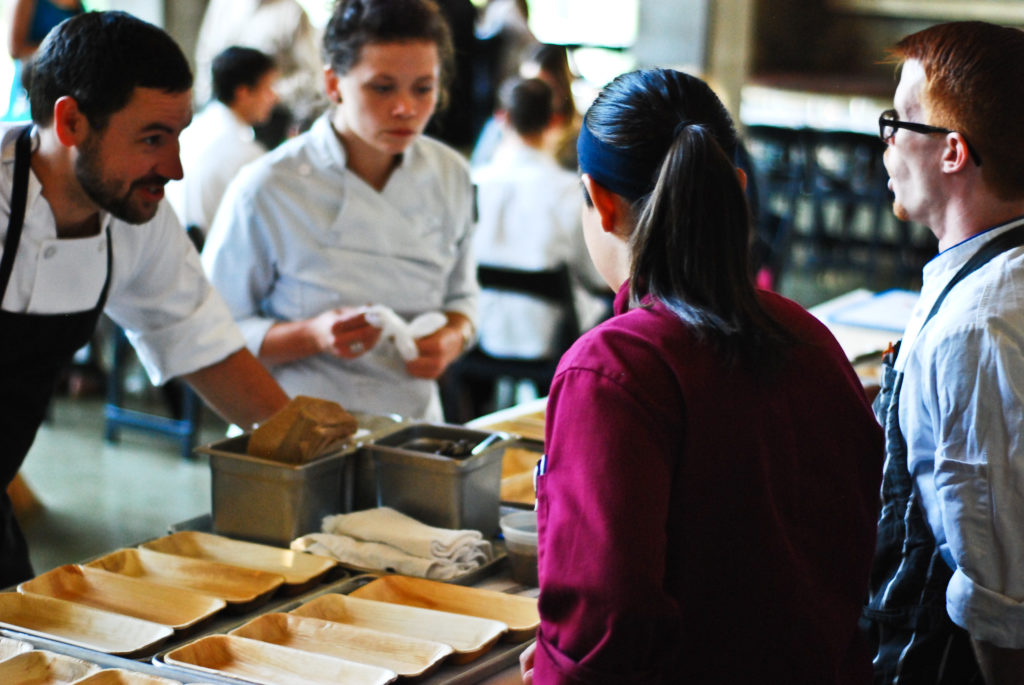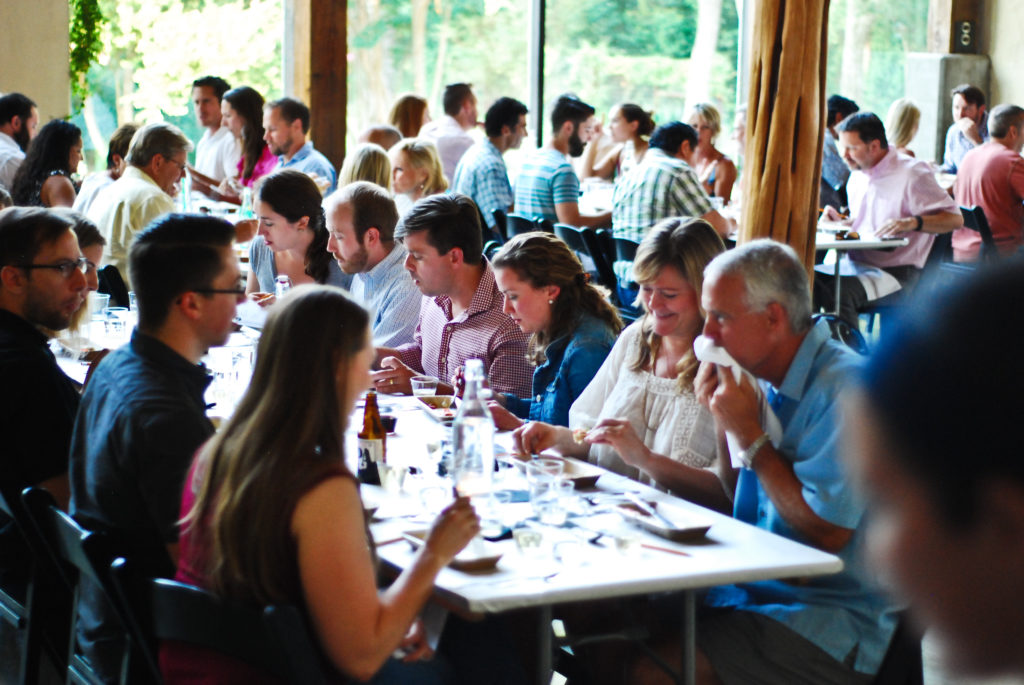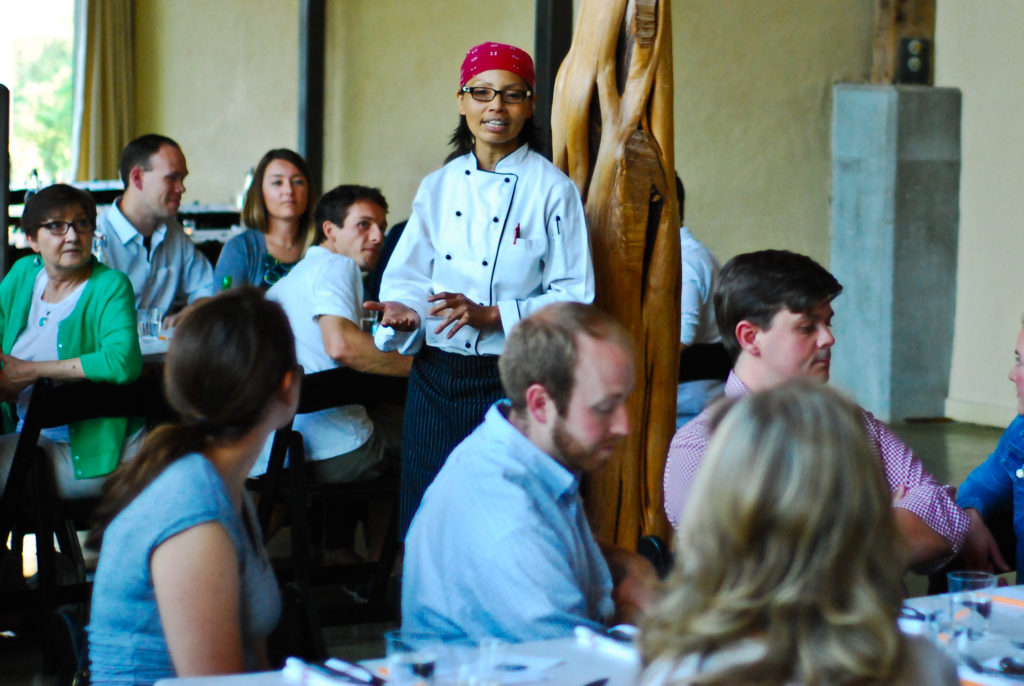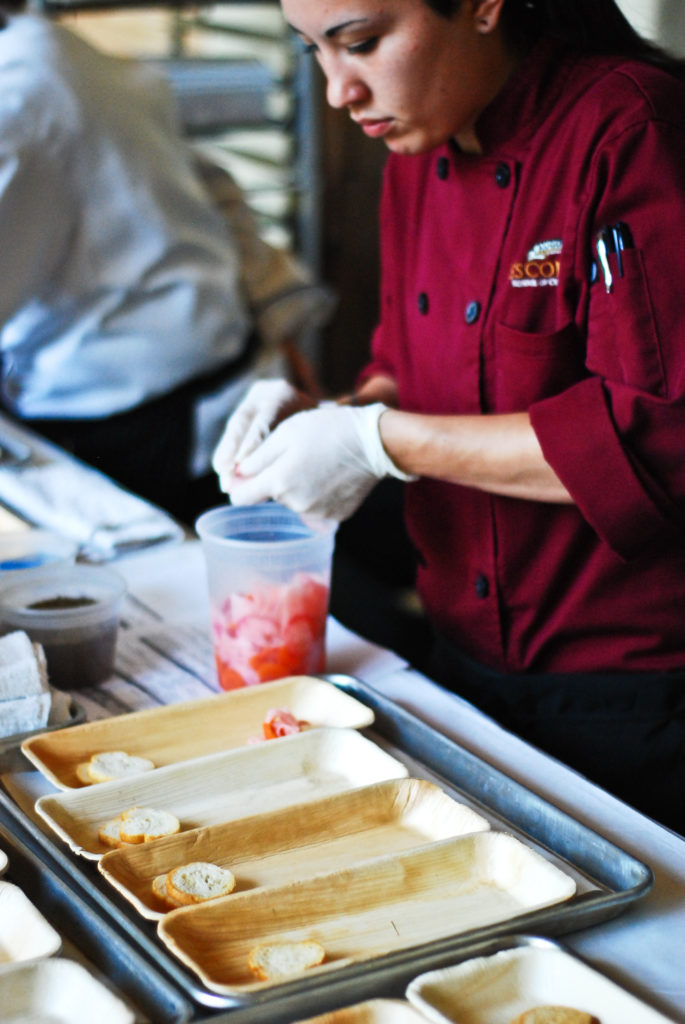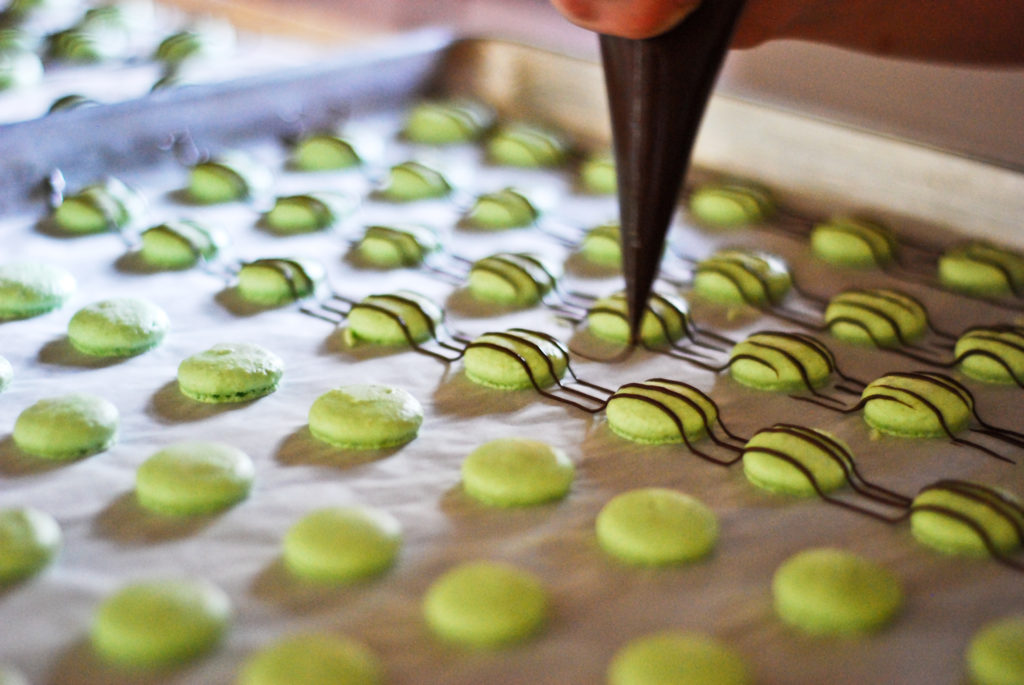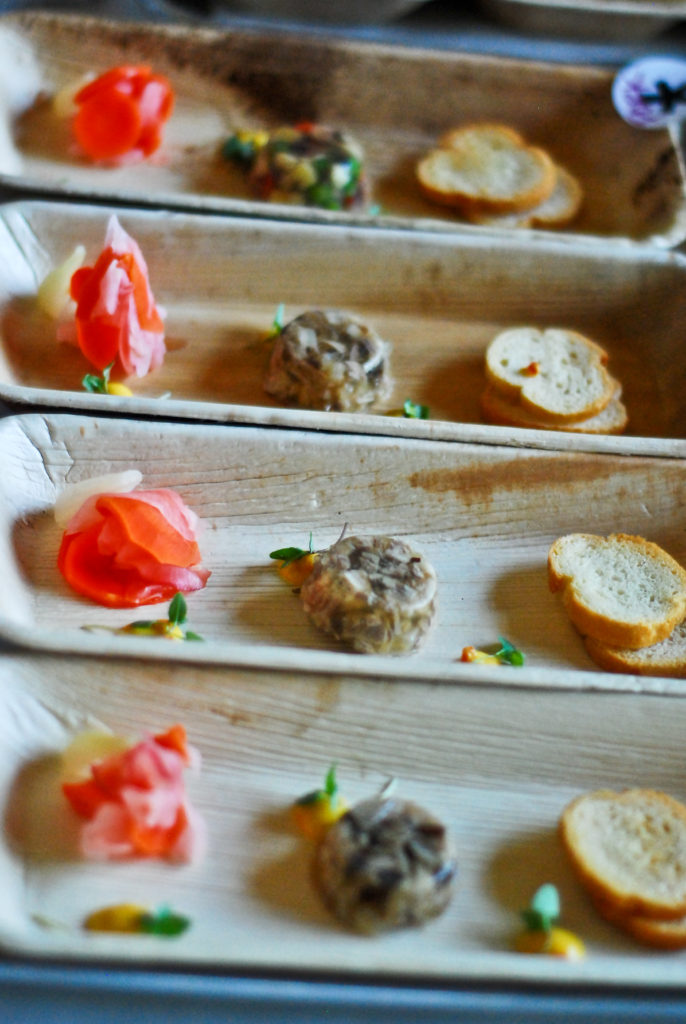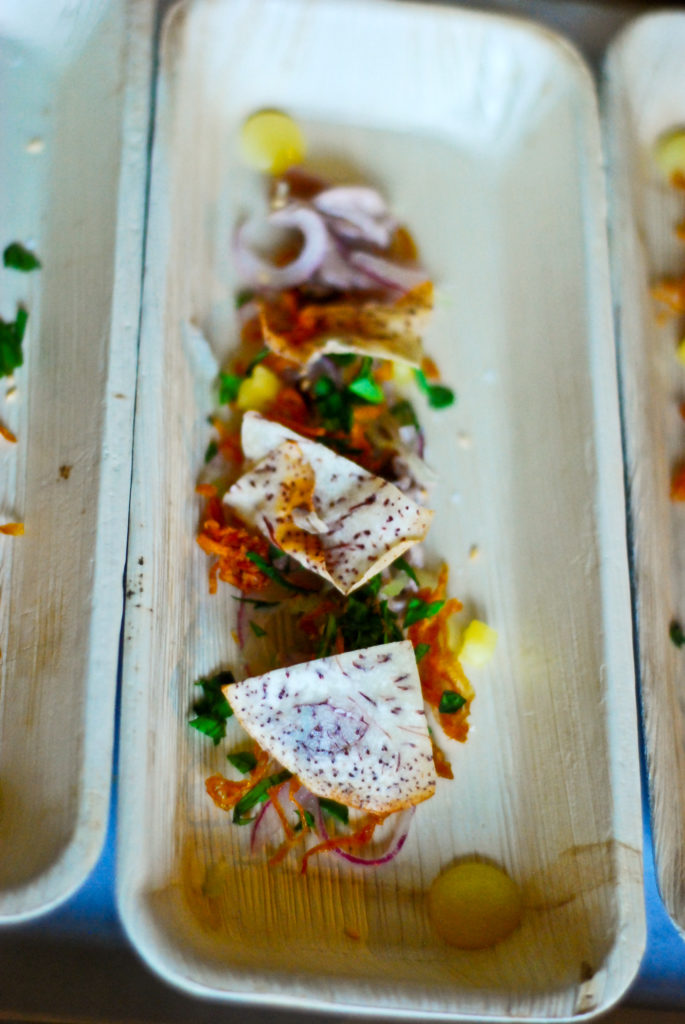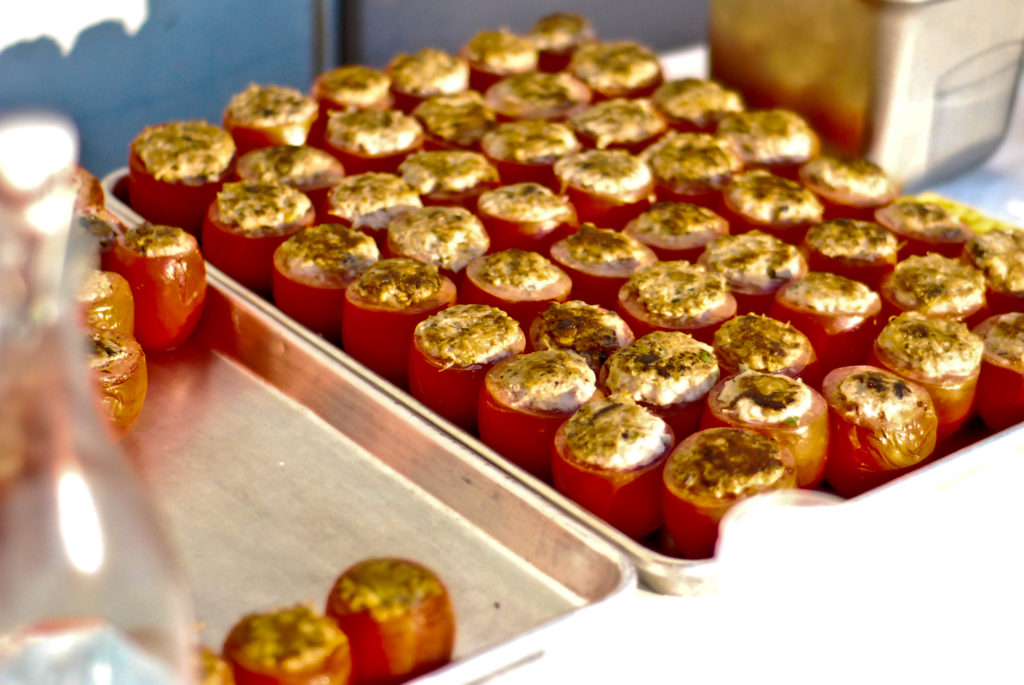By: Alex Charpentier, Culinary Arts Student
In addition to being a culinary arts student at the Auguste Escoffier School of Culinary Arts in Austin and a lifelong food enthusiast, I am also an experiential marketer. I have worked in or with service industry companies since the age of 15 when I took my first job at a Bay Area gourmet ice cream shop. It was there that I discovered my natural ability and affinity towards hospitality and service. However, it was not until I read “The Experience Economy” by B. Joseph Pine II and James H. Gilmore in 1998 that I recognized I was an experiential marketer. At the time I had already spent more than 10 years working in hotels and restaurants around the world and had a Masters of Management in Hospitality from Cornell University and IMHI (ESSEC Business School in Paris, France). While I had been delivering memorable experiences to consumers and studying strategies to help hospitality brands better connect, it was not until I read this book that I recognized the critical importance of this concept. In doing some research for this article I discovered that the modern term for The Experience Economy is Exponomy. Having re-entered the restaurant industry earlier this year, certain dining trends have reminded me of the on-going relevance of this philosophy.
As an experiential marketer and food enthusiast, I have been fascinated by the concept of pop-up dinners and supper clubs since I first heard about them in early 2014 while living in San Antonio. A company called Dinner Lab that’s based in New Orleans had recently expanded into Austin and was bringing their pop-up dinner membership program to San Antonio. Their concept was the first of its kind in San Antonio and local food critics, bloggers and fellow food enthusiasts rushed to purchase memberships and gain exclusive access to the first event. When I first moved to Austin last summer I applied for a prep cook position with Dinner Lab and had the opportunity to work alongside two different chefs for two different events. Unfortunately, due to the rules surrounding my MasterChef season 6 casting I had to abruptly end my “career” with Dinner Lab. However, I have continued to follow their growth as well as the overall rise in popularity of these types of events and companies.
Pop-up restaurants, also called supper clubs, are essentially temporary restaurants. They are sometimes held in private homes, unused warehouses, and industrial buildings or in other restaurants. Diners typically hear about these events through social media and all communication including reservations is done online.
According to a recent study by Eventbrite where they analyzed more than 40,000 food and drink events on their platform, they found that the fastest growing trend was the pop-up dining experience with 82% growth in 2014—most notably in big cities like San Francisco, New York, Brooklyn, Los Angeles and Boston. Communal dining events saw the second largest growth over the prior year with 76% in top cities like New York, San Francisco, Washington DC, Atlanta and Santa Monica. On a side note, Eventbrite also ranked Austin fifth in their list of top 25 food loving cities according to their data.
I wanted to take a closer, more personal look at this popular dining trend from the perspective of three different chefs and three different variations on the pop-up dinner theme. I had the pleasure of talking to Chef Pham, Culinary Arts instructor at the Auguste Escoffier School of Culinary Arts in Austin, Chef David Bull of Congress and Second Bar + Kitchen in Austin, Texas and Chef Robbie Nowlin, Chef and owner of Wicked Nights at Wickes in San Antonio.
Chef Pham recently participated in a Dinner Lab pop-up series with two events in Austin and San Antonio. A former colleague of hers introduced her to the concept as he was doing dinners for them and thought it was something that she would enjoy so she finally did.
“I had been wanting to do it (Dinner Lab) for awhile…the element of surprise and challenge of going into an unknown kitchen intrigued me,” Pham said. “As a Chef, we like to be in complete control of just about every aspect of our food and guests’ experience. With Dinner Lab all you know for sure is that you will have a location with working water, electricity and a bathroom. That can be pretty limiting and definitely takes me out of my comfort zone.”
Chef Pham thought that some of her students at Escoffier would benefit from the experience so she brought a few of them with to cook alongside her.
“I think that my students got value from the experience because they were able to put into action and apply techniques and theory that they learned at Escoffier” she said. “They were able to see how important it is to adapt to adversity, mishaps, or circumstances and be able to remain professional, calm, focused, and composed in the kitchen. I think it was very gratifying for them to see all of their hard come together and the pace in which everyone had to operate for a successful service.”
“I’m so proud of all the students who helped out. They were absolutely spectacular!”
In terms of her opinion on pop-up dinners as a culinary trend, she thinks it’s hard to say but believes it will eventually make its exit.
“There are so many pop-up dinners and people are looking for the next new and exciting dining venture more than ever. With the resources available through food television and the internet more and more people are becoming well versed in food so their expectations are higher in terms of what separates a good meal from a great one.”
What advice does Chef Pham have for current culinary students if they want to get involved with pop up dinners?
“Social networking and getting involved on the campus of [the] culinary school or building relationships at their local farmers markets are great ways. My colleagues usually have something in the works or are connected with chefs in the city that have upcoming events, and I am always happy to help provide an introduction.”
As a server at Congress, I recently had the opportunity to work the second pop-up dinner that Chef David Bull hosted at the restaurant in lieu of regular dinner service. Chef Bull turned the Congress kitchen over to the visiting chef and the Congress culinary team worked alongside him and his team in the execution of the menu.
So why would a Chef/Proprietor turn his dining room and kitchen over to another chef? According to Chef Bull, he wanted to offer his guests “insight and education from different types of chefs and cuisines” while at the same time introducing his restaurant to a new clientele, thus cross-marketing both his restaurant and the guest chef.
And then there’s the topic of who to actually choose to partner with. For this, chef Bull says he relies on a certain strategy.
“We like to search for complete opposite concepts from what we offer at Congress,” he said. “It’s a unique experience to have Indian street food in our atmosphere which was what we did for our very first pop-up.”
“We look for new and exciting concepts that are either new to the market or even trying to “test” a concept.”
Chef Bull thinks that consumers are interested in pop-up restaurant events because they feel like a one time event– you only have one chance to experience it. It’s an informal get together, a party to celebrate a unique dining experience.
He told me that the greatest benefit of these types of events is the educational factor for him and his staff. And the greatest challenge?
“Our kitchen is small and not designed for plated banquet style and also not every concept or chef has the bandwidth, time or skill to pull it off,” he said. “We are giving up our restaurant for a night and it takes a lot of coordination and logistics to make it successful.”
In terms of advice for recent culinary arts grads just getting into the restaurant scene chef Bull says pop-ups are a great way to bring the culinary community together. However, there are very few operations that can create a financially stable environment just doing pop-up dinners. He recommends that if you’re going to follow a trend, plan on having a backup.
Chef Robbie Nowlin is the founder of Wicked Nights at Wickes and is currently working to combine the popularity of pop-up dinners with his philanthropic efforts with the Hot Wells Conservancy.
Wicked Night at Wickes is essentially a supper club but Chef Nowlin wanted to do it in a different way.
“I’m at a point in my career where I have the financial resources to be able to give back to the community,” Nowlin said. “Typically supper clubs charge guests a few to come to the dinners. This fee is used to cover food cost and wine, etc. I decided to ask guests to bring HEB gift cards in any amount they see fit. I in turn take those gift cards and either donate them directly to Haven for Hope or use them to purchase product to cook meals for Haven.”
Chef Nowlin decided that this type of culinary event was the best way for him to give back to the San Antonio community based on all of the resources available like the popular chef’s following. He said all-in-all, this has been nothing but a wonderful experience. Opposed to other major issues that could occur, the greatest challenge he’s faced so far is finding live music for the event.
“It’s a lot of work setting up for Wicked Nights at Wickes dinners, there is never a dull moment,” he said.
In terms of on-site and off-site prep and service, I wanted to know how it all goes down. According to Nowlin, the featured chef writes his/her menu and has the option, but not the duty, to take care of their own products. Jason Dady of Jason Dady Restaurant Group and Stefan Bowers of Rebelle are prime examples of these types of chefs.
“I offer to pick up the cost out of my own pocket but the chefs want to be a part of giving back too so sometimes they decline,” Nowlin said.
Conversations like the ones that I had with these three Chefs are what inspire and motivate me in my current quest to become an integral part of and contributor to the Texas culinary landscape. I am honored to have access to these passionate chefs and restaurateurs as I continue on my journey, and I am grateful for their time in sharing their thoughts with me.

